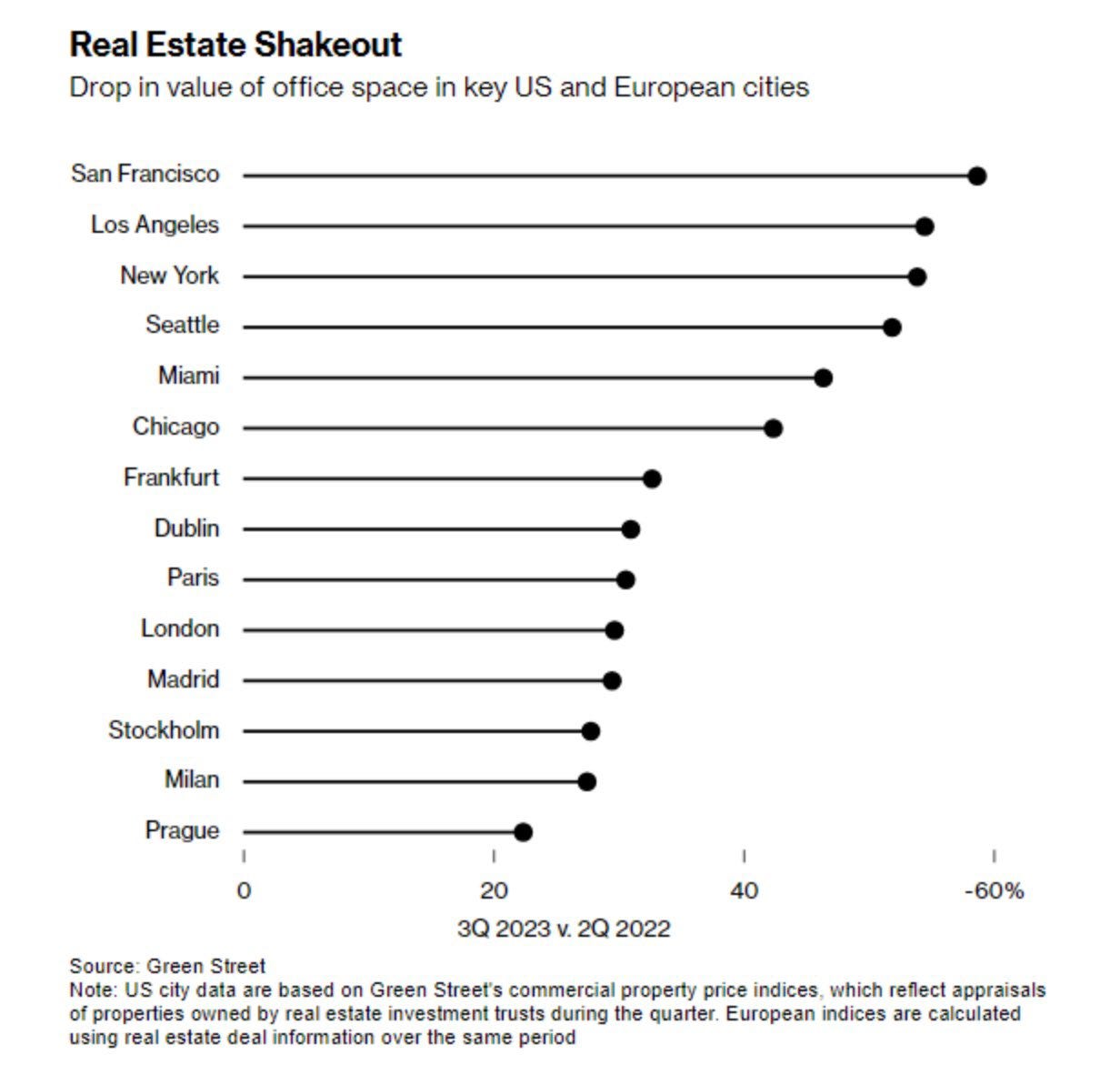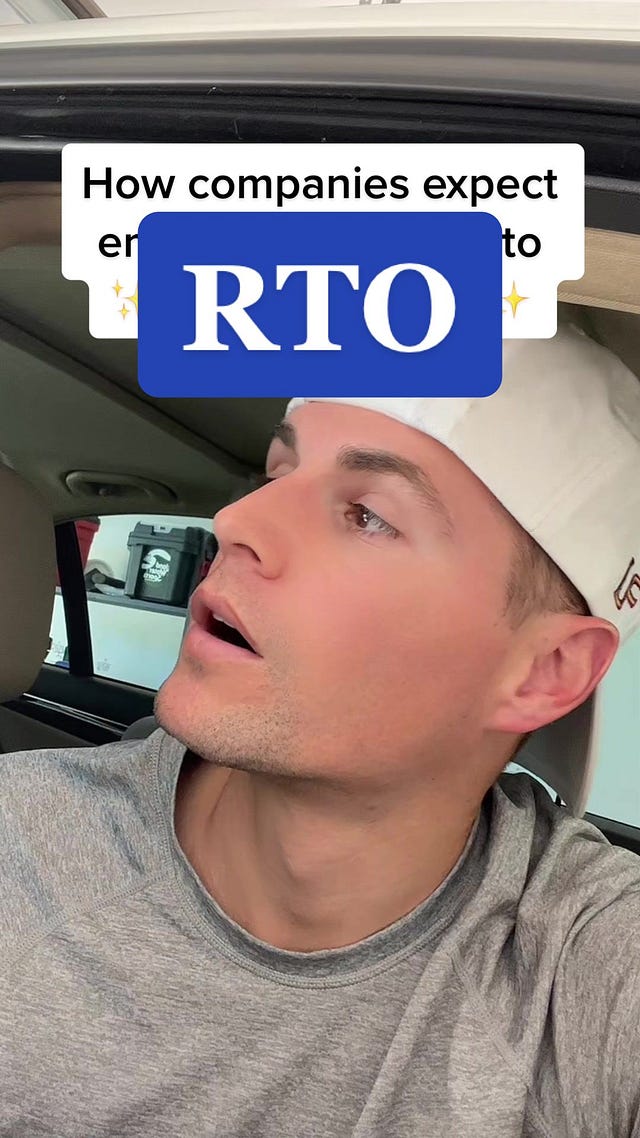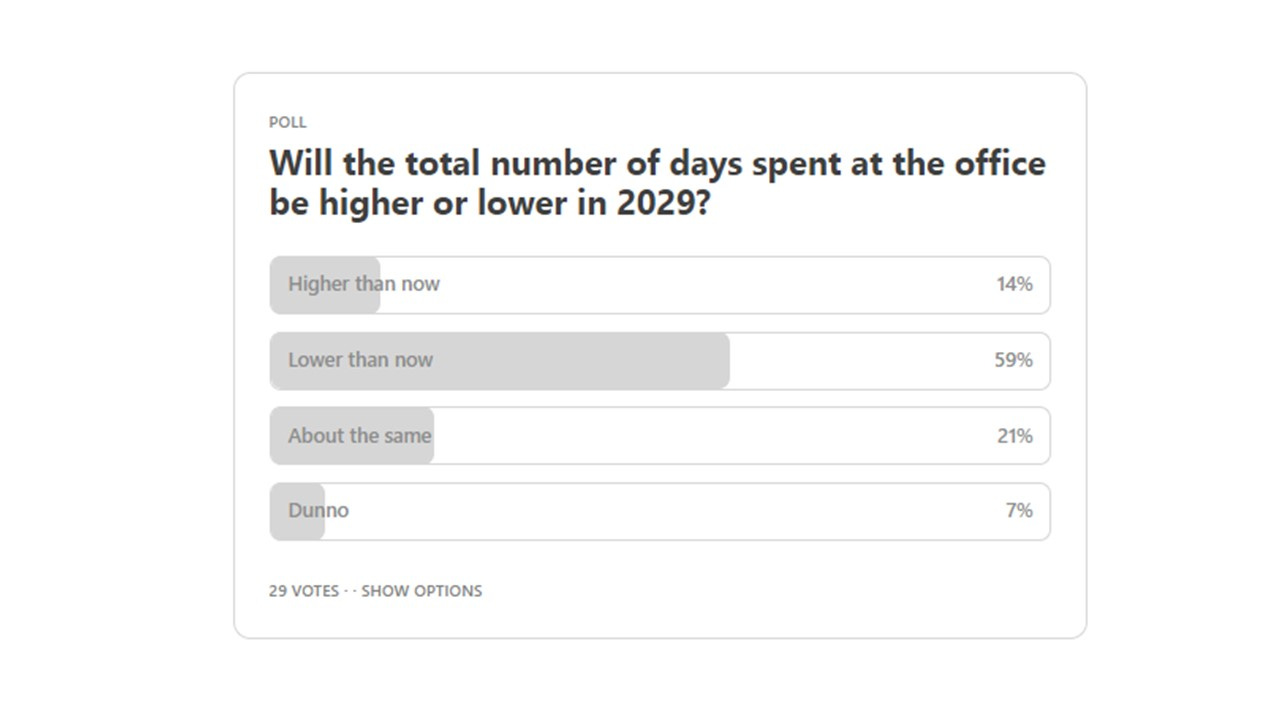The Last Call of the Corporate Peacock🦚
#WF52 The real reasons why workers are being called back to empty offices
(This episode is also available as a Podcast🎙️)
What is behind the 5-day Return-To-Office (RTO) mandate by larger employers?
There is no evidence that RTO leads to long-term productivity improvements.
My last article, Peak Office, argued that the two major factors behind RTO were making it easier for managers to visibly exert control, and to justify the sunk-cost of investments in offices.
Stanford Professor Nick Bloom argues that when a firm announces a 5-day RTO mandate it signals trouble ahead. He goes as far as stating that investors should sell their stock, and workers should update their CV/resumes.
Today we go from Peak Office to Peacocks🦚
Corporate Peacocking
The concept of Corporate Peacocking - like male peacocks displaying vibrant plumage to attract mates, managers can showcase their status and contributions better when working onsite. Activities like swishing their feathers at all-hands company meetings or buying post-work drinks.
By bringing workers back to the office, managers can better signal their dominance in the corporate pecking order.
Don’t Mess With Us
There are some cringe-inducing internal videos circulating justifying the call back to the office. One notable example comes from the CEO of Internet Brands (which includes WebMD). The video mocks remote workers, threatening employees who don't come into the office. The video ends with people dancing to "Iko Iko" while the phrases “We mean business”/“Don’t mess with us" flash across the screen.
Other phrases include,
"We aren’t asking or negotiating at this point. We’re informing."
“Your manager will be in touch shortly about how this will be implemented and tracked.”
Iko Iko Indeed.
TikTok is a rich mine for understanding worker sentiment. These viral videos related to return to the office tickled me with a feather.
Commercial Property Debt Crisis - A Slip of a Kitchen Knife
Delving into the rationale behind RTO mandates, my hypothesis goes beyond the flaky rationale of workforce productivity. Imagine your corporate balance sheet is burdened with excessive real-estate debt – the kind that sends shockwaves through the financial system.

In an exploration of this, The Economist asked the same question (thanks for reading 😉) and offered some reassurance ;
The wound inflicted on the financial system by commercial property is best likened to that caused by a slip of a kitchen knife—it is nasty, obvious and painful. Stitches might be required. But it is unlikely to grievously injure the victim.
UPDATE - In last week’s poll, 59% predicted fewer office days by 2029 reinforcing the hunch we may have reached peak office already.
The Last Call of the Corporate Peacock?
Rather than just another throw of the dice by leaders to show they’re in charge, might sweeping RTO policies represent the last call of the Corporate Peacock?
Various trends indicate the days of corporate peacocking will come to an end over the coming years.
City office leases will expire and convert to apartments.
Industries will adapt to emerging technology and geopolitics.
Self-organised teams will need less show-offs to demonstrate their value.
We will still look for ways to signal our status - but more in the digital realm than strutting our feathers in the office.
(If you are reading this as a long email you can read online if you prefer.)
What do you think is really behind the RTO mandates?
Productivity gains, surveillance of workers, or justifying the sunk cost of corporate real estate investments. Share your thoughts below!
(You can read the full Peak Office article here and Voting is still open)
Peak Office
(If you prefer you can listen to this article as a Podcast 🎙️) What is behind some of the rather desperate attempts to bring people back to the office? Is it really to improve productivity, to keep an eye on workers, or to justify some very large investments in offices.
You can also listen to this on a podcast 🎙️ version of this article if you prefer.
Subscribe to Workforce Futurist for More Insights
I hope you enjoyed this edition, if you haven’t already, please subscribe to get analysis and emerging work trends direct to you inbox.
As always, hit reply if you want to chat, share any views in the comments and feel free to share this post with your network!
Workforce Futurist is published by Andy Spence











